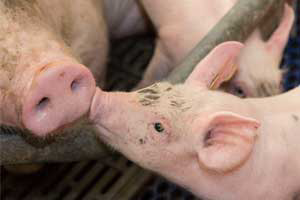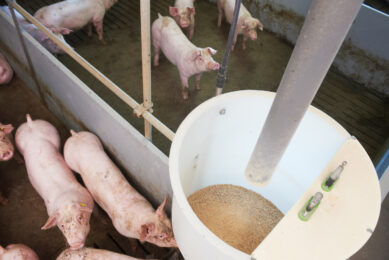Prenatal diet creates food preferences in young pigs

Early exposure to flavours of maternal diet may modulate food preferences and neophobia of young animals.
The effects of prenatal exposure to a certain flavour create a preference that can be strengthen if the exposure has a continuity during lactation (Galef y Henderson 1972; Bilko et al. 1994; Desage et al. 1996; Mennella et al. 2001; Hepper y Wells 2006). Norel S.A. carried out a double choice trial to test if Fluidarom 1003 increased feed preference of weaned piglets previously conditioned through maternal diets.
The trial was performed with 12 sows during last third of gestation and during lactation. The control group (T-1) received a standard diet and the treatment group (T-2) the same diet supplemented with Fluidarom 1003.
Two days after weaning both piglets form T-1 and T-2 sows were subjected to a free choice test between a milky vanilla flavoured feed (dose 500g/t) and a feed flavored with Fluidarom 1003 (dose 375 g/t). The results showed that piglets from control diet sows (T-1) preferred the milky vanilla feed (71,9%), while the piglets from sows fed a Fluidarom 1003 diet (T-2) preferred the feed with Fluidarom 1003 (78,6%). Regarding the piglets’ feed intake, T-2 piglets consumed 6,74 g/BW/piglets whereas T-1 piglets 4,85 g/BW/piglets. We can conclude that Fluidarom 1003, through the inclusion in maternal diets, increases the preference and feed intake of piglets at weaning.











